
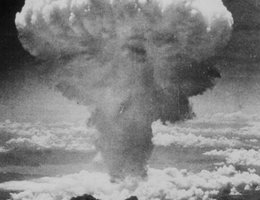
"I used to think in my head, just before I dropped (a bomb), if I wait two more seconds, who is it going to affect? Whose lives? This is what you think about."
—Edward Sellz, Omaha, NE
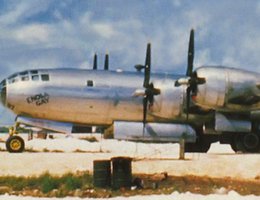
Truman gravely made the decision to drop the atomic bomb in Japan, first on Hiroshima on August 6th, and then on Nagasaki on August 9th, 1945. Those are the only two events of an atom bomb being used in times of war. In an instant, the 20-thousand-ton atomic explosion killed 66,000 people and injured 69,000 in Hiroshima. Many more died later from initial injuries or radiation fallout.
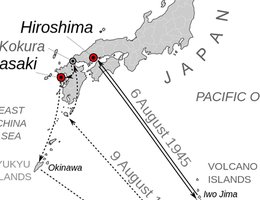
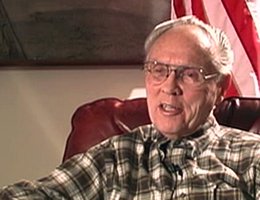
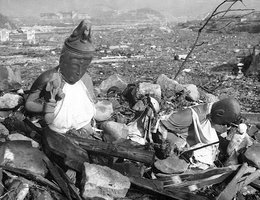
Should the atom bombs have been dropped? People still disagree. Some Japanese consider it a war crime; some think it was necessary to end the war. Here is what two Nebraskans who lived through the war thought:
"Well, this part was beyond anyone’s imagination. When that happened, you just couldn’t possibly visualize that anything could be that devastating. Just anything though at that time to bring the war to a close was very elating, and yet it was a terrible catastrophe, I know. . . . Since then, there’s been a lot of speculation whether they should have done it or shouldn’t (have), but that’s the way it happened."
—William Chalupsky, National Guard, Comstock, NE
197th Infantry in the Aleutian Islands, Alaska"At that time, we corpsmen were given to understand that we were going to have a ninety percent casualty rate if we went into Japan. To say the least, we decided that when the atom bomb was dropped, that was the finest thing that ever happened to us."
—Keith Vail, Navy Hospitalman
First Class in Mediterranean Lincoln, NE
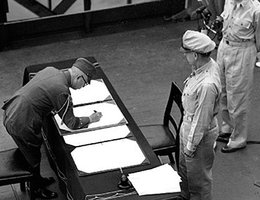
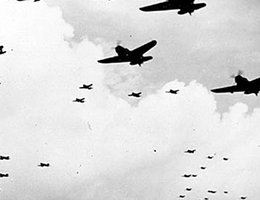
Whether dropping the bomb was necessary or not, it did definitely end the war. The United States accepted the Japanese surrender on August 15, 1945. Later, a more official ceremony was performed on board the USS Missouri.